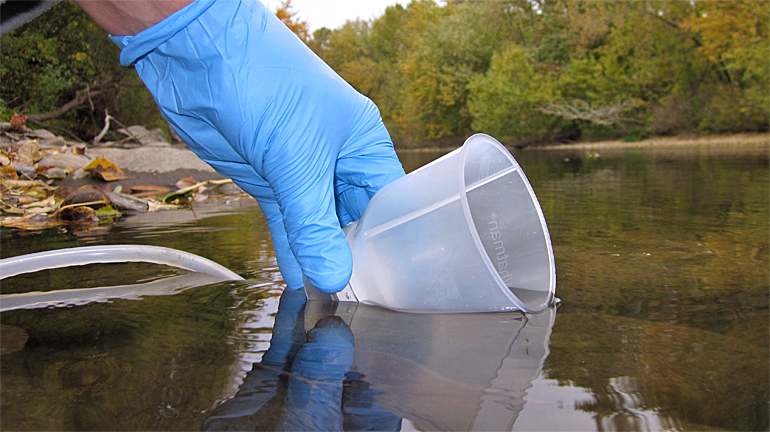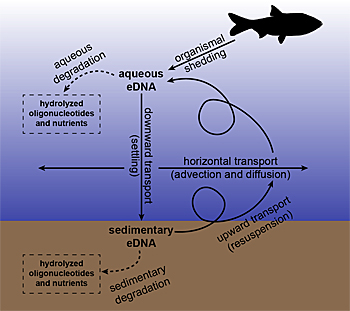KWR and Naturalis to study eDNA for monitoring aquatic biodiversity
 KWR Watercycle Research Institute and Naturalis Biodiversity Center joined forces as each other’s preferred partners in a recently signed cooperation agreement in the area of biodiversity and water.
KWR Watercycle Research Institute and Naturalis Biodiversity Center joined forces as each other’s preferred partners in a recently signed cooperation agreement in the area of biodiversity and water.
Both institute are currently working in three innovative research projects, which involve, among others, the use of environmental DNA (eDNA) as a new means of monitoring aquatic biodiversity.
 It can be easier to determine the presence of certain aquatic organisms by identification of its DNA than by direct observation.
It can be easier to determine the presence of certain aquatic organisms by identification of its DNA than by direct observation.
Measuring quality surface water
The projects aim to develop instruments to support (end) users in defining well-founded objectives; and to assist them in evaluating measures taken to meet the requirements of international legislation and policies, like the European Water Framework Directive.
Biodiversity in lakes and rivers reflects an integrated image of environmental conditions, which determines the potential for the establishment and survival of organisms.
This principle is the foundation of various systems for biological water quality monitoring. Knowledge of a water system’s biodiversity provides an important key to unlocking information on potential environmental constraints.
Based on a sound diagnosis, one can formulate promising water management options to restore aquatic ecosystems.
Patterns of biodiversity
The identification of organisms using eDNA can be very helpful in this respect. Plants and animals leave behind in their environment all kinds of traces, like slime, skin cells and faeces that contain their species-specific DNA.
Such eDNA offers exciting new possibilities to monitor aquatic biodiversity in a fast, cost-efficient and reliable way. This is important, for instance, because of the steadily declining number of taxonomic experts.
Both partner organisations also expect that the observed patterns of biodiversity in a water sample will give them information on the demands made by the species on their environment.
KWR offers an eDNA tool as part of the Watershare suite (for members only). The tool assists aquatic biomonitoring by providing a growing list of validated eDNA barcodes for a variety of aquatic species.
This news item was originally published on the website of KWR Watercycle Research Institute.
More information
KWR Watercycle Research Institute
Nieuwegein, the Netherlands
+31 30 60 69 511
www.kwrwater.nl
Naturalis Biodiversity Centre
Leiden, the Netherlands
+31 71 568 7600
www.naturalis.nl/en/services



